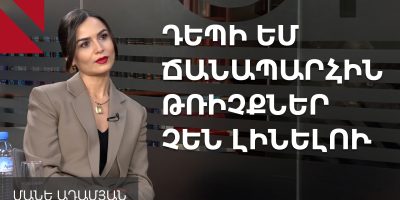 Baku’s cash reserves are not very big and the decrease in its revenues, triggered by the fall in prices, will probably be amplified by a drop in its export volumes.
Baku’s cash reserves are not very big and the decrease in its revenues, triggered by the fall in prices, will probably be amplified by a drop in its export volumes.
Petrostrategies, a French think tank reviews the impact of the continuing drop of oil prices on Azerbaijan’s economy. In their weekly magazine “The World Energy” (January 26, 2015) analysts of the firm write that “Azerbaijan will have to withdraw from its cash reserves to finance a bigger budget deficit in 2015.”
Azerbaijan is one of the rare oil exporters (like Saudi Arabia) to have decided against lowering their budgetary expenditure in 2015, despite the fall in crude oil prices. Yet Baku’s cash reserves are not very big and the decrease in its revenues, triggered by the fall in prices, will probably be amplified by a drop in its export volumes, since at best, its production will be able to remain stable while its consumption continues to grow. Another noteworthy fact is that the new Azeri budget forecasts a 5.8% rise in the State’s revenues in 2015, to $24.9 billion, although the crude price that it uses as a benchmark has been lowered. This price shrinks from $100/b in the 2014 budget to $90/b in the new one, thus basing itself on the price of the BTC blend that was in force in October, when the 2015 budget was being established. But since then, this price has fallen to $48.7/b. In 2014, the average BTC price stood at $101.8/b, slightly exceeding the budget scenario. But the outlook does not bode so well for 2015.
Baku has also raised its budgetary expenditure for 2015, to $27 billion. It is thus projecting a face deficit of around $2 billion. But if the sales price of its crude oil averages at around $55-$60/b in 2015 (a level close to analysts’ current consensus), instead of the planned $90/b, its oil and gas revenues could be halved, plummeting to $10-11 billion. Its budgetary deficit could thus increase by at least $7 to $8 billion, nudging close to the $10-billion mark. It will then have to make further withdrawals from its oil cash reserves, which are handled by the State Oil Fund of Azerbaijan (Sofaz). These reserves stood at $37 billion at the end of 2014 and could therefore end 2015 at some $27 or $28 billion.
Sofaz is funded by oil revenues generated through taxation and via the share of the profit oil that the State is due. Each year, the presidential decree that enacts the Azerbaijan budget indicates in its last article a deficit amount “that does not take Sofaz’ incomes into account”.
For 2015, the stated amount is $19.8 billion, i.e. 9.7% higher than 2014. Nearly 77% of the State’s oil revenues are transferred to Sofaz, that in turn contributes to the budgetary revenues, which would be in the red without this contribution. Sofaz thus covered 58.2% of the budget’s revenues in 2013. The remaining so-called “direct” oil revenues, account for the taxes that the state-owned firms (such as Socar) pay to the Treasury. They amount to some 23% of Azerbaijan’s oil revenues and in 2013 covered around 12% of its budgetary revenues.
In 2014, the Azeri hydrocarbon sector paid the Public Treasury $3.6 billion in taxes, including Socar’s “direct” contributions. For their part, foreign firms (producers and contractors) paid $19.2 billion. The State’s combined oil revenues thus came to a total of $22.8 billion. With some $7.3 billion planned, non-oil revenues are expected to cover around 30% of the budgetary revenues in 2015. Baku is trying to increase these. Thus, at the beginning of 2015, a series of new excise duties was introduced (on the import of gold and precious stones, and on the revenues from bank deposits etc.) and certain existing duties (on tobacco, alcohol, car imports etc.) have been raised sharply. But rates on income tax and VAT have remained unchanged and President Ilham Aliyev has ordered the cancellation of a 3% rise on the price of motor fuels, which had been announced on January 12. The price of Super 92 was thus kept at $0.90/liter at the pump and that of diesel at $0.77/liter.
Maintaining income tax and VAT rates and freezing motor fuel prices reflect a promise made by President Aliyev to avoid the Azeri population from feeling the pinch from the fall in oil prices. Yet the increase in the domestic demand for oil products is proving to be a burden on the volumes available for exports, especially as oil production is continuing to fall, since the historic peak of 50.8 million b/d that was hit in 2010. In 2014, Azeri oil production (crude oil and condensate) fell by 6.3% compared with 2013, to 41.9 million tons. Since consumption had risen by around 4%, net oil exports shrank by more than 8%, to 34.7 million tons. Baku could have found consolation in the 12% rise in its gas production, to 18.7 bcm in 2015. But the price at which it exports this gas fell by 28% in 2014 (to $167/1,000 cu.m) and a new cut is being requested by its main client, Turkey, for 2015.
















